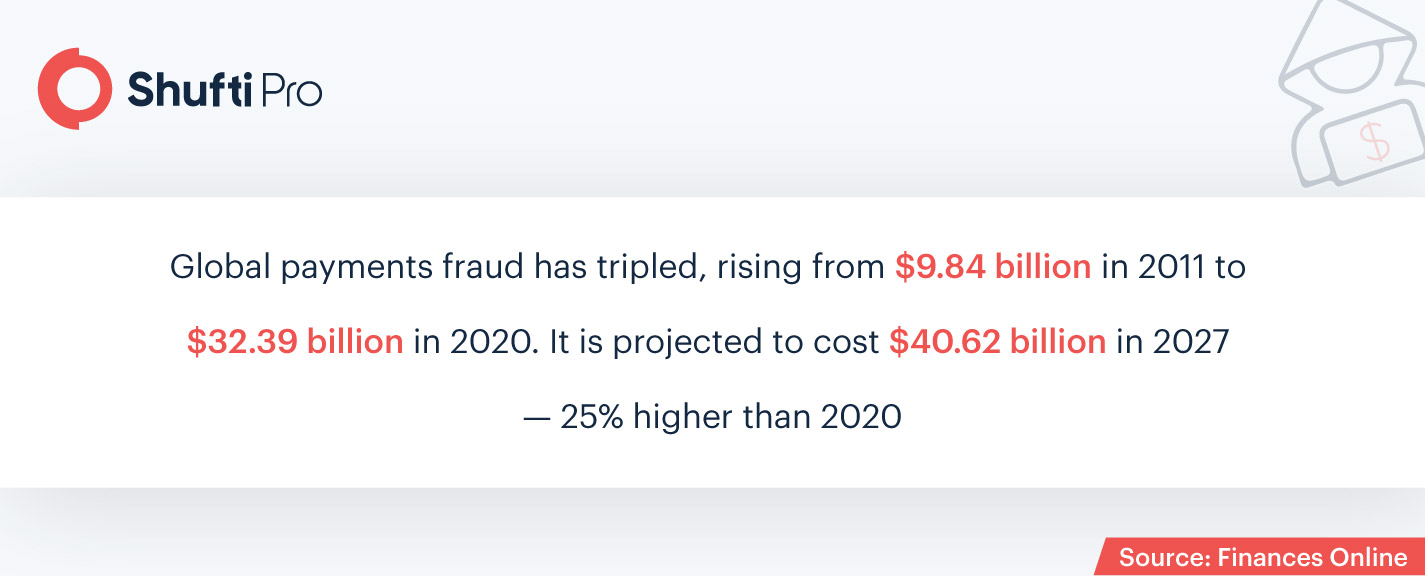Post-pandemic eCommerce Landscape Calling for Robust ID Verification Solution

During the coronavirus pandemic, the e-commerce industry has witnessed a significant increase in online sales. Due to lockdown in 2020, the demand for safer online shopping along with enhanced digital experience for customers skyrocketed. In 2020, more than two billion people availed online shopping services, and in 2021, the sales exceeded $4.2 trillion worldwide.
Businesses around the globe are adapting swift changes to enhance the e-commerce marketplaces to facilitate tech-savvy customers. While this is fruitful for online retailers, many challenges have emerged, like cybercriminals seeking to manipulate online shopping platforms.

Why is ID Verification Important for E-Commerce?
Identity verification allows eCommerce businesses to ensure the legitimacy of end-users during the onboarding process. The process includes verification of government-issued ID documents and certain liveness detection checks that ensure authentic customer onboarding and effective KYC and AML compliance.
A Glimpse at the Post-Covid E-Commerce Industry
The aftermath of the coronavirus pandemic is fruitful for online shopping platforms, yet there lies a significant risk of cybercrimes. In the post-pandemic era, the online shopping industry has touched new heights of success as people have readily started to adopt contactless buying and selling trends. The coronavirus outbreak has pushed people to route towards digital shopping. From groceries to clothing and other accessories, the shoppers are totally relying on e-commerce platforms.
Even though the shift to digital shopping was not sufficient to compensate for the loss of instore revenue, there were many bankruptcy cases throughout the online retailing industry. A vast number of retailers were impacted, but businesses like pharmacies and groceries experienced a significant jump in digital sales.
According to the KPMG, the sales of online businesses providing groceries have risen by 110% as compared to pre-covid levels. Additionally, it was also reported that overall digital shopping rates have increased by 343% since the coronavirus outbreak.
Post-pandemic Online Shopping Space – Safe Haven for Fraudsters
While online shopping opened numerous opportunities for retail businesses, perpetrators started banking on the loopholes of online shopping. Although account takeover fraud, new account fraud, and chargebacks persisted in the pre-Covid era, the statistics have skyrocketed in the post-pandemic world. According to Juniper Research, it is forecasted that the digital payment scam rate will increase by 25% between the years 2020 and 2024.
No doubt, cyberattackers have ramped up the e-commerce business scams at lightning speed since the pandemic started. While the online shopping sales increased, so did the scams.

Top 5 Most Occurring eCommerce Frauds in 2021
E-Commerce scams show no signs of slowing down. Although stealing credit cards and taking over accounts to carry out transactions are among the most occurring frauds, various other types of scams are set to mess with businesses this year.
Chargeback Fraud
This scam occurs when criminal activists purchase the product from the online shopping platform and afterward request a chargeback from the payment processor, claiming the transaction is illegitimate. Financial corporations refund the transactional value to the client, which the victim retailer must still pay.
Additionally, cybercriminals also use friendly fraud to acquire free items and essentials. For example, fraudsters purchase products from e-commerce stores and argue that they were never shipped or report to the credit card company that they never got refunded. Such situations impact digital retailers, and they are left with empty pockets.
Refund Fraud
This occurs when criminals and fraudsters use stolen credit cards to place orders over digital shopping platforms. The criminals afterward contact the e-commerce businesses and request a refund due to accidental overpayment. With this, online retailers are stuck in the middle and criminals succeed in their ill plans.
New Account Fraud
New account fraud (NAF) occurs when a cyber attacker creates new digital accounts using stolen identity information. An ID card or social security number is required to commit this fraud. Utilizing these accounts, fraudsters can make unlimited online purchases before the online retailers and credit card companies could identify fraud. Furthermore, criminals use fake shipping addresses to overcome the risk of being detected by the victim.
Suggested read: New Account Fraud, What Is It And How To Cope It?
Account Takeover Fraud
This fraud takes place when the cybercriminal illicitly gets access to the victims’ accounts by using stolen credentials and phishing attacks. Fraudsters can begin placing orders immediately. Just like the new account fraud, this fraud is not timely detected. The victims only get to know when they receive their transaction statements.
Impersonation Attacks
Typically, in an impersonation attack, cybercriminals send emails to the victims portraying themselves as legitimate online retailers or vendors. Emails involve messages requesting victims to share financial details and login credentials that provide fraudsters access to platforms’ finances and systems. Afterward, the criminals can place orders using stolen identity information.
Why Should E-Commerce Adopt ID Verification?
Criminals are using forged and stolen identities to manipulate transitional e-commerce services. Threats like account takeover, synthetic identities, payment card scams, phishing attacks, and fake address frauds are on the verge. Therefore, identity verification is the need of the hour to eradicate e-commerce fraud. Following are some of the reasons why online shopping businesses should go for identity verification services.
- Online identity verification systems will make e-commerce businesses improve their customer onboarding services.
- By using address verification services the clients’ shipping and billing address, the companies can deter the risk of delivering the order at illegitimate addresses.
- ID verification systems will help out the e-commerce businesses to stay put with the regulatory obligations.
- Identity verification solutions can also provide online retailers shield against unusual activities while securing them from the regulatory penalties.
Final thoughts
With changing consumer behavior, online retailers have to ensure a top-notch customer experience along with CDD compliance. Shufti’s cutting-edge identity verification system is all set to back e-commerce platforms that want to improve their customer onboarding procedures without getting prone to fraudulent activities. AI-backed ID Verification effectively verifies the real identities of customers and the authenticity of government-issued ID documents. Moreover, facial biometric verification and liveness detection prevent unauthorized access to digital accounts. With a market-leading accuracy rate of 98.67%, eCommerce platforms can get in touch with legitimate customers in less than a second and prevent identity fraud and other criminal activities.
Want to know more about Shufti’s identity verification service? Talk to the experts right away!

 Explore Now
Explore Now













